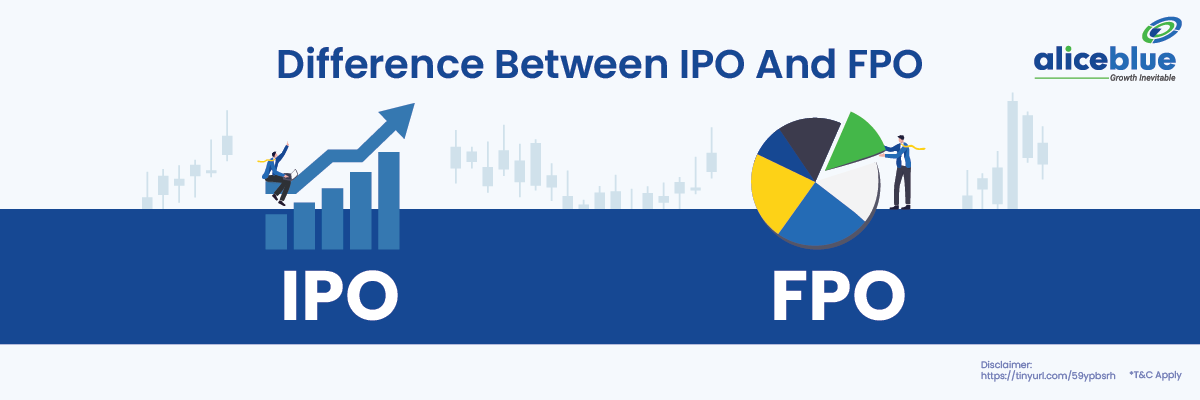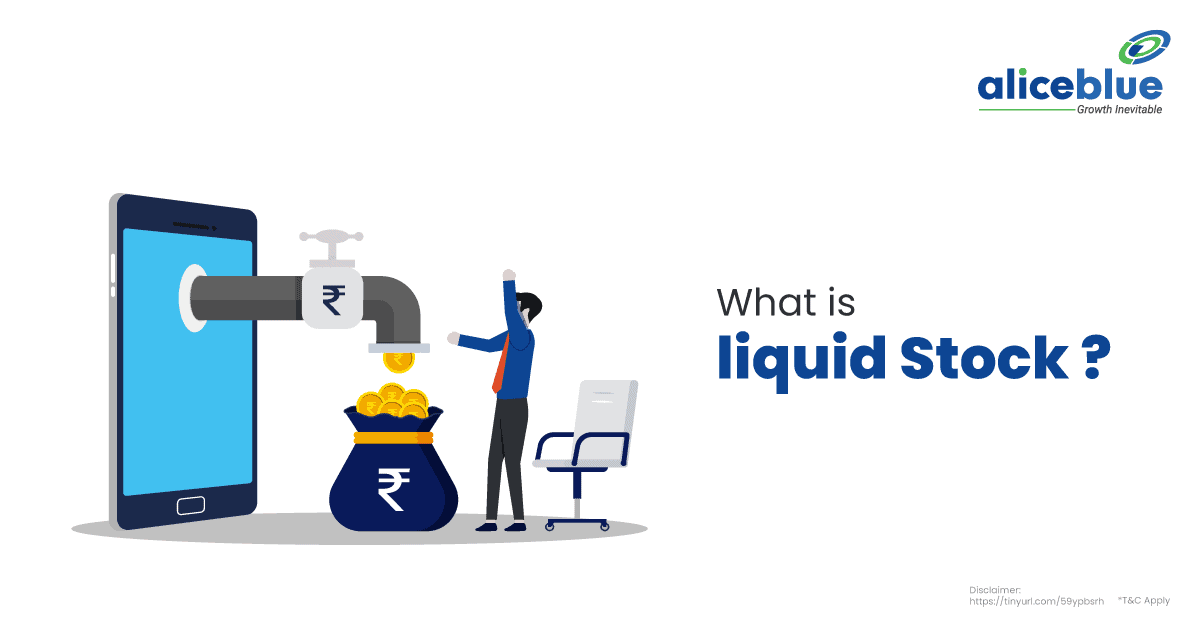The main difference between IPO and FPO is a company becomes public for the first time when it offers its shares for sale to the general public or in an initial public offering (IPO). On the other hand, the FPO process is used when a business that is already listed on a stock exchange decides to raise more money by selling more shares to the general public.
Contents:
- What Is IPO And FPO In Share Market?
- FPO Meaning
- What Is an IPO In The Share Market?
- Difference Between IPO And FPO
- How IPO and FPO work?
- IPO And FPO Difference – Quick Summary
- IPO vs FPO – FAQs
What Is IPO and FPO In Share Market?
The IPO and FPO full form are initial and follow-on public offerings. An IPO, or Initial Public Offering, is when a company first sells shares to the public. An FPO, or Follow-on Public Offering, is when an already public company sells more shares. IPO is a company’s first sale of shares, and FPO is any share sale after that.
FPO Meaning
In an FPO or follow-on public offering, a publicly traded company issues new shares to investors. Since established businesses already listed on the stock exchange frequently engage in this, FPOs are viewed as less risky than IPOs.
FPOs can be either diluted or non-diluted:
- A company can issue more shares to raise extra money, known as a Dilutive FPO. This means each share’s value is a little less, but the extra funds can be used to pay off debts or expand the business.
- On the other hand, a Non-Dilutive FPO is when the promoters or other large shareholders sell off their existing shares. No new shares are created, and the proceeds of this sale do not go to the company but to the selling shareholders.
What Is an IPO In The Share Market?
An IPO, or Initial Public Offering, marks the first sale of a company’s shares to the public.
Through an IPO, a company aims to raise capital for various purposes such as expansions, paying off debts, or funding research and development.
Moreover, an IPO increases the visibility and credibility of the company. It can be a risky investment for individuals because they have limited information about the company at this stage, and the stock’s performance is uncertain.
Difference Between IPO And FPO
The main distinction between an IPO and an FPO is that an IPO is the first time a company sells its shares to the public, whereas an FPO is the subsequent sale of additional shares by a company that has already gone public.
| Parameters | IPO | FPO |
| Definition | IPO refers to the process where a company offers its shares to the public for the first time to raise capital and becomes publicly traded. | FPO is when a company already listed on the stock exchange issues additional shares to the public to raise additional funds. |
| Stage | IPO occurs when a company is going public for the first time and aims to list its shares on a stock exchange. | FPO occurs after a company has already completed its IPO and is already listed on the stock exchange. |
| Timing | IPO is conducted as an initial step in the company’s journey to become publicly traded and is usually the first time the company sells shares. | FPO takes place when a company needs to raise more capital after the initial public offering to fund expansions, acquisitions, or other corporate needs. |
| Purpose | The primary purpose of an IPO is to raise capital for the company’s expansion, operations, research and development, and other strategic objectives. | FPO is conducted to raise additional funds for specific purposes, such as expansion, debt repayment, working capital requirements, or acquisitions. |
| Price Determination | The price of IPO shares is typically determined through an underwriting process involving valuation, market conditions, and negotiations. | The price of FPO shares is determined based on market conditions, investor demand, and the company’s financial performance at the time of the offering. |
| Offering Size | IPO usually involves a larger offering size, aiming to raise substantial capital for the company’s growth and expansion plans. | FPO generally involves a smaller offering size than IPO, as it intends to meet specific funding needs or capitalize on market opportunities. |
| Regulatory Requirement | Companies going public through an IPO need to meet stringent regulatory requirements, such as disclosure obligations, financial reporting, and corporate governance standards. | Companies conducting an FPO are subject to fewer regulatory requirements compared to an IPO, but still need to comply with relevant securities laws. |
How IPO and FPO Work?
A company’s decision to go public marks the start of an IPO.
1. An investment bank is chosen to serve as the process’s underwriter at first. Together with the company, the underwriter manages all aspects of the IPO, such as due diligence, regulatory filings, and share pricing.
2. A prospectus is a document that the company files with the Securities and Exchange Board of India (SEBI) that contains financial information and plans. The underwriters and company management then present the offering to potential investors during a roadshow.
3. The shares are priced and offered for sale to the general public after evaluating investor demand and regulatory approval.
FPOs follow a similar process but its easier because the company is already listed publicly and has experience.
1. In an FPO, the company chooses how many shares will be issued, and the price is frequently determined by the market or set below the going rate.
2. A prospectus is created, regulatory approvals are obtained, and shares are offered to the public, just like in an IPO.
IPO And FPO Difference – Quick Summary
- IPO is the first time a company sells shares to the public, which marks its move to the stock market. FPO is the sale of more shares by a company already on the stock market.
- An IPO refers to a private company’s first public issuance of shares, usually to raise capital for business expansion and growth. Conversely, an FPO is carried out by a company that’s already public.
- While an IPO holds a certain level of risk due to the limited information available about the company, FPOs are generally considered less risky because of the company’s established presence in the market.
- When a company decides to go public, it initiates an IPO process. Working alongside an underwriter, they handle key tasks like due diligence, regulatory filings, and share pricing. A prospectus is filed with the regulatory board, and potential investors are presented with the offering during a roadshow.
- FPOs, which occur after a company is already publicly listed, follow a similar process but with the advantage of prior experience. The company determines the number of shares to be issued, and the price is often determined by the market or set below the prevailing rate.
- If you have decided to invest in IPO or FPO, then Aliceblue is a one-stop solution for you to invest in both IPO and FPO. Alice Blue is renowned for its affordable brokerage services and user-friendly trading platform.
IPO vs FPO: FAQs
1. What is the difference between IPO and FPO?
A: An initial public offering, or IPO, is the first time a company sells its shares to the general public. A follow-on public offering, or FPO, is the sale of additional shares by a company after it has already gone public.
2. Which is better, IPO or FPO?
A: The number of variables, including the company’s objectives, market conditions, and investor demand, determine whether an IPO or FPO is appropriate. There is no definitive answer as to which is better, as it varies case by case.
3. What does non-dilutive FPO mean?
A: Follow-on public offering (FPO) is referred to as being non-dilutive if existing shareholders sell their shares to the general public rather than the company issuing new shares. This indicates that the current shareholders’ ownership stake is unchanged.
4. What is the difference between IPO, FPO, and OFS?
A: An IPO is the initial public offering of a company’s shares; an FPO is the subsequent public offering of additional shares; and an OFS (Offer for Sale) is the sale of shares by current company shareholders.
5. Which is India’s largest FPO?
A: Coal India Limited’s FPO in 2010 raised about 15,200 crores (roughly $2.1 billion).
6. What are the three types of IPO?
A: There are three different kinds of initial public offerings (IPOs): 1) Mainstream IPOs, in which new shares are issued to the public; 2) Follow-on IPOs, in which an existing listed company issues additional shares; and 3) Green Shoe IPOs, which allow underwriters to sell more shares than they had originally planned.
7. What is a lot size in an IPO?
A: The minimum number of shares an investor can offer for or buy during an IPO is a lot size. To ensure uniformity in share distribution, it is typically fixed and predetermined by the company.
We hope that you are clear about the topic. But there is more to learn and explore when it comes to the stock market, and hence we bring you the important topics and areas that you should know:
| Market | What is Primary Market? |
| Bull vs Bear Market | |
| Trading | What is Online Trading? |
| What is Algo Trading? | |
| Investment | What is Bonus Share? |
| What is Valuation of Shares? | |
| What is Corporate Action? | |
| Analysis | Stock Market Analysis |
| Individual Topics | What are CTT & STT Charges? |
| India Vix | |
| Difference between FDI and FII | |
| Account | What is Trading Account |
| What is Demat Account |
Click the link to access the web story now: Difference Between IPO and FPO






